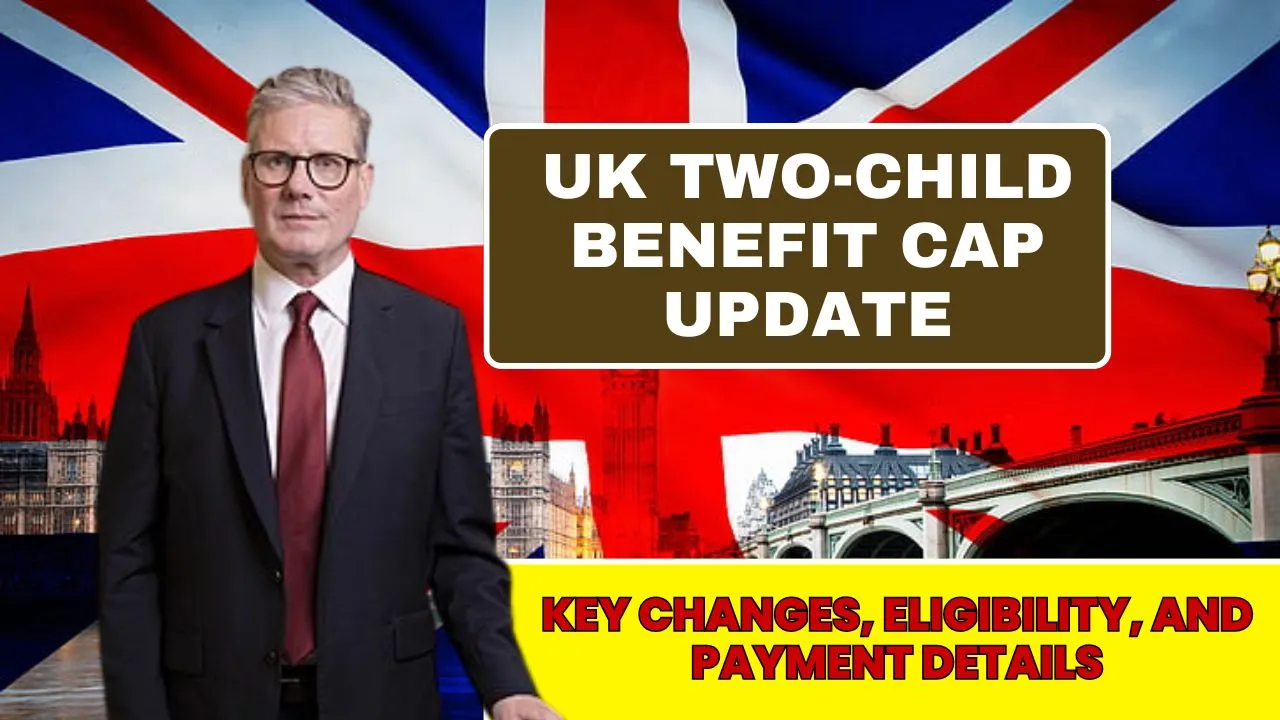UK Two-Child Benefit Cap Update : As of May 2025, the UK Two-Child Benefit Cap Update remains a hot topic across the country. Introduced in 2017, this policy limits financial support through Universal Credit and Child Tax Credit to just two children per family, affecting thousands of households. With living costs rising and child poverty concerns growing, the cap continues to spark debate among politicians, social groups, and families.
The UK Two-Child Benefit Cap Update has brought renewed attention due to increasing public pressure and political discussions about possible reforms. More than 450,000 households and over 1.6 million children are impacted by this rule. In this article, we’ll explore the key changes, who is affected, current exemptions, payment details, and what future reforms might look like.
Understanding the Policy Mechanics
The UK Two-Child Benefit Cap Update applies to families receiving Universal Credit or Child Tax Credit for children born after April 6, 2017. While there are a few exemptions, most families don’t receive additional financial support for a third or subsequent child. The policy was designed to encourage financial responsibility, but critics argue it has increased child poverty, especially among working families.
Overview of the Two-Child Benefit Cap
| Aspect | Details |
| Policy Launch Date | April 6, 2017 |
| Households Affected | 450,000 |
| Children Affected | 1.6 million |
| Working Households | 59% of those impacted |
| Annual Loss per Child | Up to £3,455 |
| Repeal Cost | £2.5B now; £3.6B when fully rolled out |
| Most Affected Regions | London, North West, West Midlands |
| Official Resource | GOV.UK – Child Benefit |
Who Is Most Affected?
The policy hits low-income, working families the hardest, particularly those living in areas with high housing costs like London and the North West. Despite working, many families report struggling to cover basic expenses. Statistics show that nearly 60% of affected households are working families, proving that employment alone doesn’t shield families from financial hardship under this policy.
The Debate: Fiscal Control or Social Injustice?
Supporters of the cap believe it promotes responsible family planning and helps control government spending. However, critics argue that unexpected life events such as job loss, illness, or divorce can force families onto benefits, making the cap unfair. Many see it as punishing families simply for having more children, regardless of their circumstances or efforts to stay financially stable.
Current Exemptions
While strict, the policy does offer a few exemptions where families can claim benefits for more than two children:
- Multiple Births: If twins or triplets are born after a second child.
- Adoption or Kinship Care: Children adopted or cared for by relatives.
- Non-Consensual Conception: Cases involving rape or coercion.
Families facing these situations should review their eligibility to ensure they aren’t missing out on support.
April 2025 Child Benefit Rates
It’s important to note that Child Benefit payments are separate from the two-child cap. As of April 2025, these rates have increased:
- £26.05 per week for the eldest or only child
- £17.25 per week for each additional child
These payments are available to all eligible families, regardless of how many children they have, providing some relief despite the cap on other benefits.
Possible Reforms in 2025
With public criticism rising, several reforms to the UK Two-Child Benefit Cap Update are being discussed:
- Exempting children under age five from the cap
- Extra allowances for disabled children
- Increased payments for children aged 0–3
- Linking Child Benefit increases to inflation
- More support for working families, such as expanded free childcare
Although a full repeal of the policy is unlikely due to high costs, targeted reforms could ease the burden on many families.
Financial Impact of Full Repeal
Ending the two-child cap entirely would be expensive. The current cost is estimated at £2.5 billion annually, rising to £3.6 billion when fully implemented. This financial strain has made lawmakers cautious, even as calls for change grow louder.
Understanding the Benefit Cap
Many confuse the two-child limit with the broader benefit cap, which sets a maximum amount a household can receive in benefits. The cap varies depending on location and family status:
- London (Couples): £25,323
- London (Single Parents): £16,967
- Outside London (Couples): £22,020
- Outside London (Single Parents): £14,753
Families with multiple children often face challenges from both policies combined.
Actionable Steps for Affected Families
If you’re impacted by the UK Two-Child Benefit Cap Update, here’s what you can do:
- Review Your Eligibility: Check if you qualify for any exemptions.
- Use Benefits Calculators: Tools like Turn2Us or EntitledTo can help assess what support you’re entitled to.
- Seek Advice: Contact organizations like Citizens Advice or CPAG for expert guidance.
- Stay Informed: Follow GOV.UK and trusted news sources for policy changes.
FAQs – UK Two-Child Benefit Cap Update
Who qualifies for an exemption from the two-child cap?
Families with multiple births, adoptions, kinship care, or non-consensual conception may be exempt.
Does the two-child cap apply to all benefits?
No, it only affects Universal Credit and Child Tax Credit. Child Benefit is not capped.
Will the two-child policy be repealed in 2025?
A full repeal is unlikely, but targeted reforms are being considered.
How can I check if I’m affected?
Use online benefits calculators and consult welfare advisors for detailed information.
Where can I get updates on changes?
Check GOV.UK, Citizens Advice, CPAG, and major news outlets regularly.
Final Thought
The UK Two-Child Benefit Cap Update continues to impact thousands of families across the country. While a complete repeal seems unlikely, ongoing discussions around reforms could bring much-needed relief. If you’re affected, make sure to explore available exemptions, seek advice, and stay updated on legislative changes. If this article helped you, feel free to share it or leave a comment below. Also, take a moment to explore other family finance tips or check out your horoscope for a little inspiration today!












